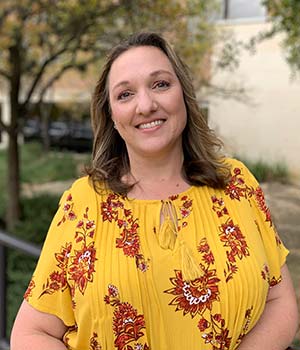


Buscar un oncólogo
Los 9 exámenes de salud principales para las mujeres
Todos necesitamos hacernos exámenes de salud regulares para asegurarnos de que estamos sanos y que todo va por buen camino. Hacerse exámenes y pruebas de salud periódicos puede ayudar a encontrar problemas antes de que comiencen, y puede ayudar a encontrar problemas potencialmente graves de forma temprana, cuando tus posibilidades de tratamiento y curación son mejores. Al hacerse los exámenes y tratamientos de salud adecuados, estás aumentando tus posibilidades de vivir una vida más larga y saludable.
¿Cuáles son los exámenes de salud más importantes que deberías realizarte?
Hay una serie de exámenes de detección que son importantes, y dependiendo de tu edad, salud, antecedentes familiares y opciones de estilo de vida, es posible que necesites considerar otros exámenes de detección no enumerados aquí. Sin embargo, como pauta general, estos son algunos de los exámenes más importantes que las mujeres deben realizarse.
- Colesterol – Más del 30 por ciento de los adultos estadounidenses tienen colesterol alto. El colesterol alto te pone en riesgo de enfermedades cardíacas y accidentes cerebrovasculares. El colesterol alto no tiene señales ni síntomas, por lo que es importante hacerse chequear para estar seguro.
- Presión arterial alta – La presión arterial alta es una condición común y peligrosa. Se le conoce como la “asesina silenciosa” porque a menudo no tiene señales ni síntomas de advertencia. Asegúrate de revisarla regularmente.
- Diabetes – Demasiada glucosa en la sangre puede causar problemas graves con el tiempo. Esto puede dañar los ojos, riñones y nervios. La diabetes también puede causar enfermedades cardíacas, accidentes cerebrovasculares e incluso la necesidad de extirpar una extremidad. Pídele a tu médico que revise tu glucosa en sangre, o azúcar en sangre, con regularidad.
- Cáncer de seno – Se desconoce por qué algunas mujeres contraen cáncer de seno, pero hay muchos factores de riesgo que incluyen obesidad, tomar píldoras anticonceptivas y más. Si eres mayor de 50 años, es especialmente importante que te hagas una mamografía cada dos años. Las mujeres de 40 a 49 años deben hablar con su médico sobre cuándo comenzar y con qué frecuencia hacerse una mamografía.
- Cáncer de cuello uterino – El cáncer de cuello uterino encontrado temprano puede ser más fácil de tratar. Por lo tanto, hacerse una prueba de detección del cáncer puede marcar la diferencia. Se recomiendan las pruebas de Papanicolaou cada tres años para mujeres de 21 a 29 años de edad. Se recomienda una prueba de Papanicolaou y una prueba de VPH (prueba conjunta) cada cinco años para las mujeres de 30 a 65 años. O puedes continuar haciéndote una prueba de Papanicolaou sola cada tres años.
- Cáncer colorrectal – El cáncer colorrectal ocurre cuando se forman tumores en el revestimiento del intestino grueso, que incluye el colon y el recto. Es común tanto en hombres como en mujeres. Si tienes 50 años o más, debes hacerte una colonoscopia cada 10 años o una colonoscopia virtual cada cinco años. Alternativamente, se puede realizar un examen de detección de heces cada año.
- Cáncer de piel – El cáncer de piel es el cáncer más común en los Estados Unidos. Informa a tu médico sobre cualquier lunar o cambio inusual en la piel, especialmente si tienes un mayor riesgo.
- Osteoporosis – La osteoporosis reduce y debilita los huesos. Cualquiera puede desarrollar osteoporosis, pero es más común en mujeres mayores. La mejor manera de verificar la salud ósea es a través de una prueba de densidad mineral ósea.
- Cáncer de pulmón – El cáncer de pulmón es la principal causa de muerte por cáncer en los Estados Unidos. Más del 80 por ciento de las personas que desarrollan cáncer de pulmón lo contraen por fumar. Si actualmente fumas, la mejor manera de reducir tu riesgo es dejar de fumar.
Otros análisis o exámenes de detección pueden ser apropiados para ti. Mantén un diálogo abierto con tu médico sobre tu salud y los riesgos. Tu edad, salud y antecedentes familiares, opciones de estilo de vida (es decir, lo que comes, qué tan activo eres, si fumas) y otros factores importantes influyen en qué y con qué frecuencia necesitas atención médica.





